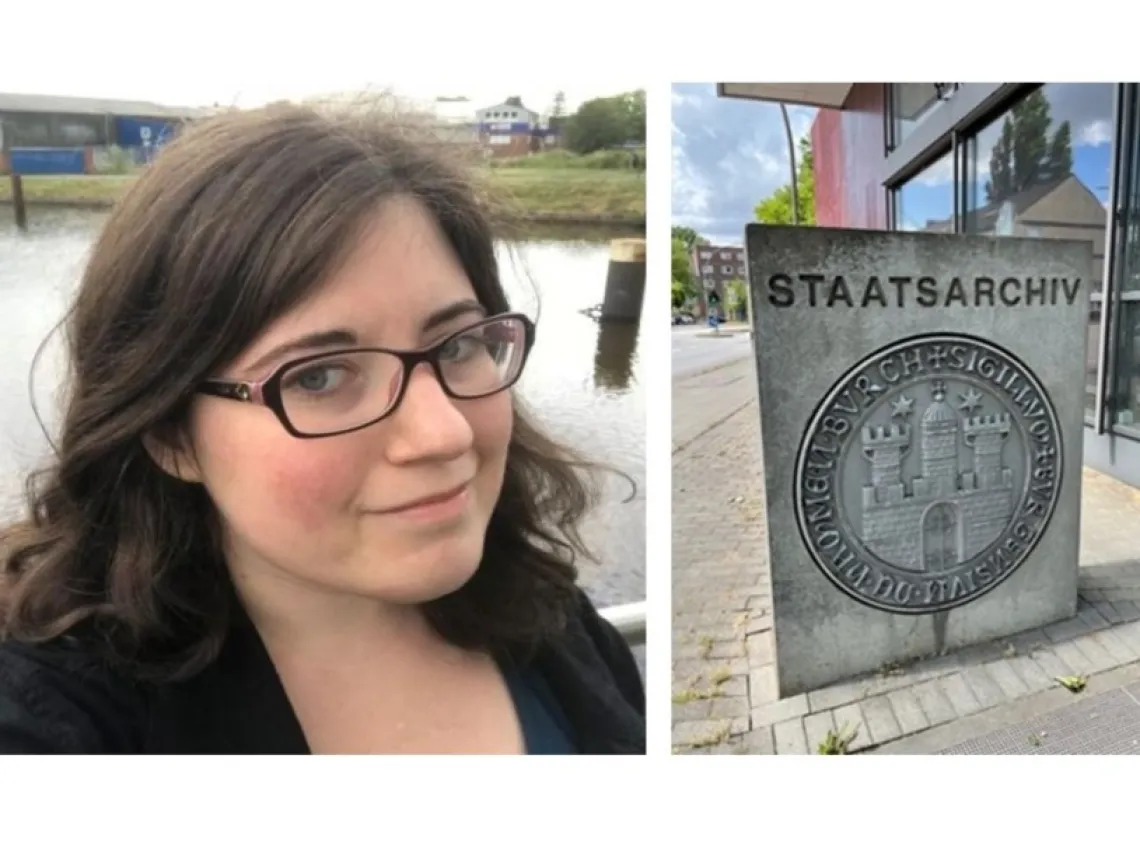Missing in the Archives: A Search for Blunt's Wife

Annie Morphew. State Archives in Hamburg.
In February 2020, I was combing through the Hamburg State Archive searching for traces of the English merchants who lived in the city from the sixteenth through the nineteenth centuries. At the time, I was vaguely aware of a novel virus that was making the news, but I was frankly too absorbed in my ongoing dissertation research to pay the reports much attention. My proposed dissertation was an examination of the social history of the English merchant community in Hamburg, focused on the Company of Merchant Adventurers, the official, royally sponsored merchant association in the city.
Then at the end of February, I met Charles Blunt. Charles Blunt was an English merchant who lived and worked in Hamburg in the early eighteenth century. In 1727, Blunt had applied to join the Merchant Adventurers, but the Company rejected his application. In the ensuing controversy, both Blunt and the Company’s governor Sir John Emerson posited a variety of possible reasons for Blunt’s rejection ranging from Blunt’s marriage to a local woman to his Quaker faith. The emerging picture of Blunt challenged all my previous characterizations of Hamburg’s English merchant population so, naturally, I wanted to learn more about him. To my delight, I found a collection of his letters preserved in the archive. Here was what I had been hoping for: a person who had left a paper trail who could serve as a window into English merchant life in early modern Hamburg.
Less than a month later, when I was only a fourth of the way through Blunt’s correspondence, the COVID-19 pandemic had reached a crisis point. The Fulbright Commission, which was funding my research abroad, informed me on a Friday that I had to leave Germany and return to the United States before the borders closed on Monday.
For two years, I worked with what I had to begin writing first drafts of the eventual dissertation. However, this was a frustrating process as some of the key players in Blunt’s life story remained shadows known by their function rather than their name. For instance, Blunt’s wife was everywhere in his letters and his dispute with the Company of Merchant Adventurers. But that is all she was called in the documents I had: Blunt’s wife. Her namelessness continued to bother me throughout my writing. I had so many questions about who she was and what sector of Hamburg’s merchant society her family anchored Blunt to.
This June, I was finally able to return to Hamburg and pick up the story where I had been forced to abandon it in March 2020. On my first day back in the archive, I pored over Blunt’s family letters. Suddenly, I found Frau Blunt’s name: Johanna. To be precise, she was Johanna Blunt née Elking. As my gut had suspected for years, her name shifted everything into place.
The Merchant Adventurers had claimed that Charles Blunt was apprenticed to a burgher of Hamburg, a citizen of the city with voting rights, and that he had married his master’s daughter. Their narrative was not based on the reality of Blunt’s life. His former master and his father-in-law were two entirely different people. And Johanna Blunt was not the daughter of an enfranchised Lutheran burgher but the youngest daughter of the Elking family, a prominent merchant clan in Hamburg’s Dutch Mennonite community.
Finding Johanna and more about her family has introduced entirely new questions for me about merchant family networks and how religion linked or separated Hamburg’s various foreign merchant communities. I am incredibly grateful for the opportunity to be back in the archive and free to explore these questions.
##
“Missing in the Archives: A Search for Blunt’s Wife” was published in the Spring/Summer edition of the “Desert Harvest,” published by the Division for Late Medieval and Reformation Studies. Annie Morphew is a doctoral candidate in the Division for Late Medieval and Reformation Studies.

